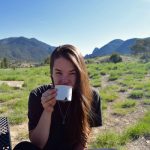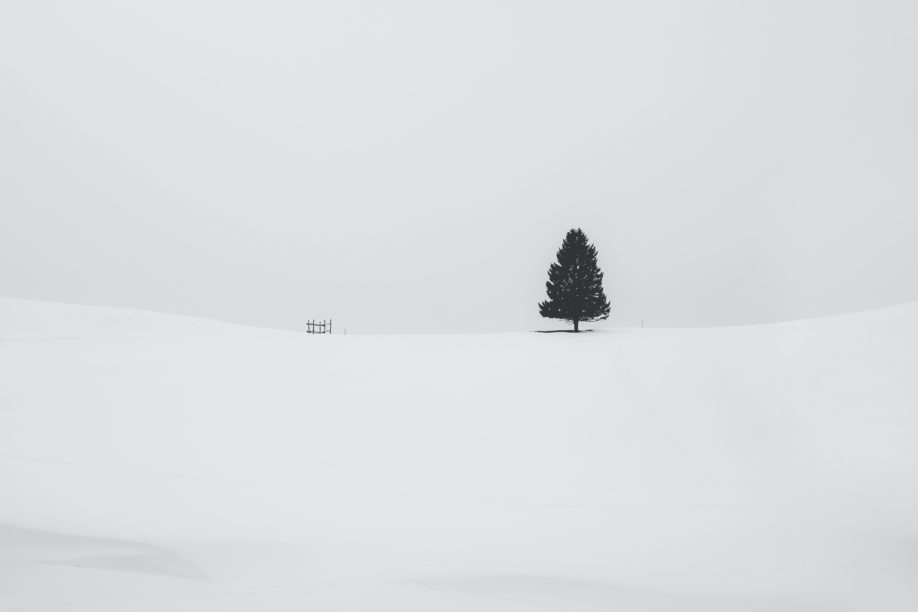Musings on the season by The Thought Erotic editors, Courtney E. Morgan, Ansley Clark, and paparouna
Still, Here
by Courtney E. Morgan
Solstice
Sol, the sun. Sistere, to stand still. From the Latin.
The standing still of the sun.
To stand still. To stand, still. We’ve reached the winter solstice of this year, this 100-years year, this forever year, we are almost at its end.
It is so strange to remember now, to grow still and quiet in this time, in this time of quiet and stillness, in this year of silence and isolation—also this year of anger and sorrow and gnashing and wailing.
We would like to thank our readers, and our contributors, for your understanding for how long this issue took, for our skipping right over our spring, our summer, our fall issue and ending up here, now, at the winter solstice. Thank you for your patience. A word that feels different in the mouth of this year.
I was looking back at our last issue, published February 26, 2020, and marveling at the strangeness of what we didn’t know, of how we stood at the precipice, on the brink of all the change and upheaval that was to come, that was coming, already. How strange how different it all was; how hard now to imagine, to remember.
It is still hard, still strange to get out an issue even now, even as we’ve adapted, become neutralized to this living, and dying. And yet, it feels important, feels necessary to remember, to recognize, our bodies, our mouths, our sex, our crying and crying out, our connecting and our aloneness. Now.
Thank you for weathering this year and for being here now, with us, in stillness and quiet, as the sun stands still—before we shift and move forward into a new season, a new time. Another year.
Punctuating 2020…
by Ansley Clark
I had a hard time coming up with something to write for this issue’s editorial. I’m not sure what to say about the erotic in 2020. I feel…empty? Does anyone else out there feel empty, too?
I intentionally write this statement with ellipses and a question mark because, for me, these two pieces of punctuation characterize the past year: ellipses, indicating an omission, or a vagueness, and a question mark, indicating uncertainty, the need for support/response/communication.
I feel okay about this emptiness. I feel that the past several years, and especially the past year, were filled with overwhelming noise. And my current emptiness creates space for creative potential—for the erotic. It creates space for quiet things to speak: the unappreciated and un-glamorous, the weird and the ignored, the “nobodies” and the “nothings.”
How amazing then, that the winter solstice brings a stillness that celebrates these quiet things. Here in the Pacific Northwest, the sun sets around 4:00pm and rises at 8am, and the in-between hours linger greyish-ly. I’m spending the next couple of weeks reading fan fiction, perusing fan art in Patreon’s forgotten corners, writing erotica (and not “literary erotica” but, like, the trashy stuff that I will probably never share), and participating in virtual D&D sessions with friends.
I chose the poems in this issue for the power of their empty spaces or omissions. Even the longer pieces that look busier on the page and that include more words seem to revolve around longing and silences, whether these silences are full of anger or quiet sorrow. I believe Jessica Lawson strikingly articulates the past year’s necessities and sorrows in her poem “Tail”:
survival is an availability to touch. this was never what we wanted.
we did what needing asked.
Endings and beginnings
by paparouna
In the rhythms of cycles and spirals that are prevalent in nature and the universe, endings and beginnings often blend into each other with no fanfare. And yet, we humans have a tendency, a desire, to mark some moments, to use them to reflect upon our own lives, to realign our rhythms and patterns with those of the cosmos.
Solstices are some of these moments, especially the winter solstice, that time when the sun stops shrinking its path across our sky and starts expanding its journey again, marking the return to longer days. The winter solstice is also that night, the longest night, when darkness is in its fullest glory. In the dominant culture that most of us grew up in, we are taught to fear the dark and relegate those parts of our lives that are deemed shameful or unspeakable—including sex and the erotic—to the darkness. For many of us, our journey to healing, and sexual healing, has meant finding ways to make friends with the darkness of our upbringing and our pasts. To recognize that darkness is just a part of the cycles that are make our lives, and the universe.
This has been a challenging year, coming at the heels of several challenging years, when some of the worst of how humans treat each other was invited to come to the surface and shine in all its ugliness. We started 2020 with some hope that this darkness would soon come to an end. The pandemic was in full swing by the time we published our late February issue, but it was in full swing somewhere else, and we could still hover naively at the brink of what was to come, that precipice before the improbable would become the regular. We gathered in coffee shops and living rooms those days, the three of us sitting next to each other, laughing, touching, while we finalizing the last details of that issue, unaware of how much we would come to miss those simple essential things.
The erotic isn’t always sexy. The erotic is also pain and trauma, grief and loss. For many communities in the margins, for the queer communities that I’m a part of, the dance between desire and death is a defining aspect of our existence, from AIDS and Pulse to queer teen suicides and the murders of black trans-women. And yet, despite all the losses that we’ve been dealt, we have endured. We continue to strive to find joy and beauty in the darkness.
It was a microscopic virus that managed to take that experience of grief and loss, so common for some, and globalize it. That queer felt sense that just leaving our homes and seeking connection with others could be dangerous, even fatal, is now shared by billions. We can hope that shared experiences will increase empathy and solidarity, and we know that this isn’t the only possible outcome.
I hold on to hope because, ultimately, the erotic is the creative. It is the spiral dance of life and death, of light and dark, of beginnings and endings. As we come to that moment again when the sun stands still, marking the beginning of longer days and heralding the still far-away promise of warmer nights, we also want to stand still, to wish you and your loved ones health and strength for what is ahead, and hope that this next year, this next cycle brings all of us more solidarity, more beauty, more connection, more healing, more empathy, more love.
 Courtney E. Morgan is the author of the story collection, The Seven Autopsies of Nora Hanneman (FC2, 2017). Her writing has also appeared in Pleiades, Lunch Ticket, American Book Review, and others. Morgan is the founder and managing editor of The Thought Erotic. She lives in Denver with her son and is writing a novel of literary speculative fiction. Find her at courtneyemorgan.com.
Courtney E. Morgan is the author of the story collection, The Seven Autopsies of Nora Hanneman (FC2, 2017). Her writing has also appeared in Pleiades, Lunch Ticket, American Book Review, and others. Morgan is the founder and managing editor of The Thought Erotic. She lives in Denver with her son and is writing a novel of literary speculative fiction. Find her at courtneyemorgan.com.
 Ansley Clark is the poetry editor for The Thought Erotic and a writer and teacher living in Colorado. She is the author of the chapbook Geography (dancing girl 2015). Her work has appeared in Crazyhorse, Black Warrior Review, Colorado Review, DIAGRAM, Bennington Review, The Feminist Wire, and elsewhere. She received an MFA from the University of Colorado in Boulder. She now lives and teaches in the wild woods of the Kitsap Peninsula in Washington State.
Ansley Clark is the poetry editor for The Thought Erotic and a writer and teacher living in Colorado. She is the author of the chapbook Geography (dancing girl 2015). Her work has appeared in Crazyhorse, Black Warrior Review, Colorado Review, DIAGRAM, Bennington Review, The Feminist Wire, and elsewhere. She received an MFA from the University of Colorado in Boulder. She now lives and teaches in the wild woods of the Kitsap Peninsula in Washington State.
 paparouna (pavlos stavropoulos) is the web editor for The Thought Erotic. Originally from Athens, Greece, paparouna currently resides in occupied Arapahoe and Cheyenne land, works in social and environmental justice education, writes queer speculative fiction, and translates Greek literature into English. They attended the Princeton Hellenic Translation Workshop and were part of the Lighthouse Book Project. They have translations published at Asymptote, Exchanges, New Poetry in Translation, Denver Quarterly, and Timber, and poetry published in The Progenitor.
paparouna (pavlos stavropoulos) is the web editor for The Thought Erotic. Originally from Athens, Greece, paparouna currently resides in occupied Arapahoe and Cheyenne land, works in social and environmental justice education, writes queer speculative fiction, and translates Greek literature into English. They attended the Princeton Hellenic Translation Workshop and were part of the Lighthouse Book Project. They have translations published at Asymptote, Exchanges, New Poetry in Translation, Denver Quarterly, and Timber, and poetry published in The Progenitor.


